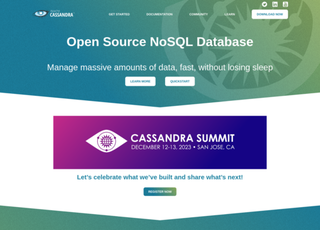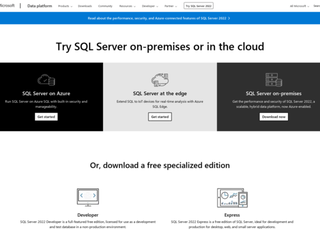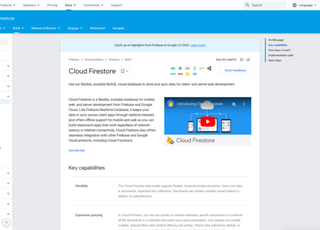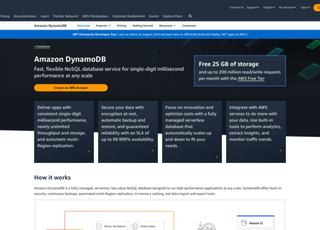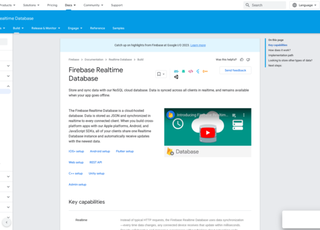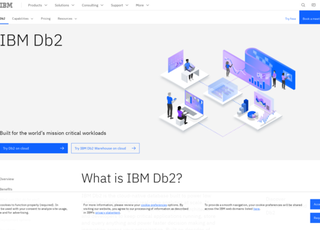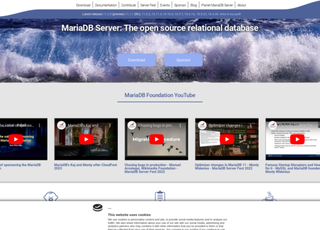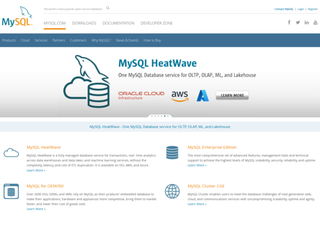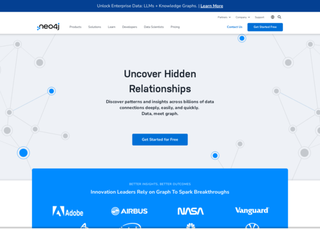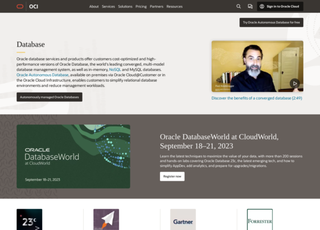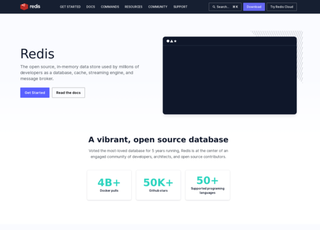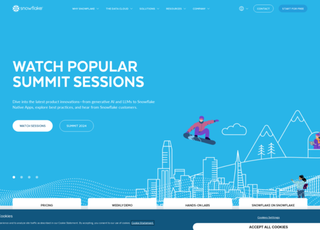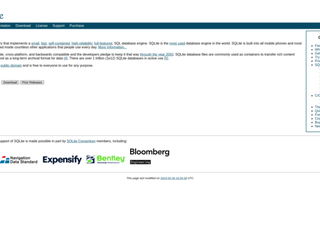PostgreSQL
https://www.postgresql.org/PostgreSQL
PostgreSQL, commonly referred to as Postgres, is a powerful, open-source object-relational database system. It has more than 30 years of active development and a strong reputation for reliability, feature robustness, and performance.
Here are some key aspects of PostgreSQL:
Object-Relational Database
Unlike traditional relational databases, PostgreSQL supports advanced object-oriented features. This means it can handle not just data, but also complex structures and relationships between different entities.
Extensibility and SQL Compliance
It is highly extensible. Users can define their own data types, build out custom functions, and even write code in different programming languages without recompiling the database. Furthermore, it is known for its high level of compliance with SQL standards.
Performance and Reliability
PostgreSQL is known for its high performance, especially in environments requiring complex queries or large volumes of data. It uses sophisticated optimization techniques and supports concurrency, which allows multiple processes to access the database at the same time without performance hits.
Advanced Features
It includes features like table inheritance, nested transactions (savepoints), multi-version concurrency control (MVCC), asynchronous replication, full-text search, and GIS data support. These features make it suitable for a wide range of applications, from simple web applications to complex data analysis and geospatial applications.
Security
PostgreSQL offers robust security features. It includes support for SSL to encrypt client/server communications, row-level security, and a host of authentication mechanisms, including LDAP, SCRAM-SHA-256, and certificate-based.
Large Community and Support
Being open-source, it has a large and active community. This community contributes to its continuous development and provides a vast pool of resources for learning and troubleshooting.
Cross-Platform and Language Support
It runs on various operating systems, including Windows, Linux, and macOS. It also supports multiple programming languages like C#, Python, Java, C, C++, and its own PL/pgSQL, which is similar to Oracle’s PL/SQL.
Tools and Extensions
There are many tools available for PostgreSQL, ranging from administration and management tools like pgAdmin to various extensions that add functionality or compatibility with other database systems.
Scalability
PostgreSQL scales well both vertically and horizontally and can handle large amounts of data and high transaction volumes.
ACID Compliance
PostgreSQL adheres to the ACID properties (Atomicity, Consistency, Isolation, Durability). This ensures that transactions are processed reliably and guarantees data integrity. Atomicity ensures that each transaction is fully completed or not executed at all. Consistency ensures that the database remains in a consistent state after any transaction. Isolation ensures that transactions are securely and independently processed concurrently, and Durability ensures that once a transaction is committed, it will remain so, even in the event of a system failure.
Data Types and Indexing
It supports a wide range of data types including primitives (integer, numeric, string), structured (date/time, array, range), document (JSON, XML, Hstore), geometry (Point, Line, Polygon with PostGIS), and customizations. It also offers a variety of index types like B-tree, hash, GiST, SP-GiST, and GIN which helps in efficient data retrieval.
Partitioning and Sharding
PostgreSQL supports table partitioning which helps in improving performance and managing large tables by splitting them into smaller and more manageable pieces. Sharding, which is distributing data across multiple machines, is also possible in PostgreSQL, though it generally requires additional architecture and management.
Backup and Disaster Recovery
It provides robust tools for data backup and recovery. This ensures that data is not lost and can be recovered in case of hardware failure or data corruption. Logical and physical backups are both supported, including point-in-time recovery.
Rich Set of Extensions and Add-ons
The extensibility of PostgreSQL is one of its key strengths. There's a rich set of extensions available like PostGIS for geographic information systems, Citus for horizontal scalability, and foreign data wrappers that allow accessing data from other databases directly from PostgreSQL.
Continuous Development and Improvement
The PostgreSQL project is continuously evolving with new features and improvements added in its regular releases. This ensures it remains relevant and keeps pace with the changing needs of database systems in modern applications.
Wide Range of Use Cases
From small applications to high-volume websites and complex transactional systems in finance and telecommunications, PostgreSQL’s feature set makes it a versatile choice for a wide array of uses.
Strong Community Support and Documentation
The PostgreSQL community is active and supportive, offering extensive documentation, tutorials, and forums for both novice users and experienced database professionals.
PostgreSQL combines the best aspects of traditional relational database management systems with modern, cutting-edge features, making it a go-to choice for developers and organizations looking for a reliable, scalable, and advanced database solution.





















